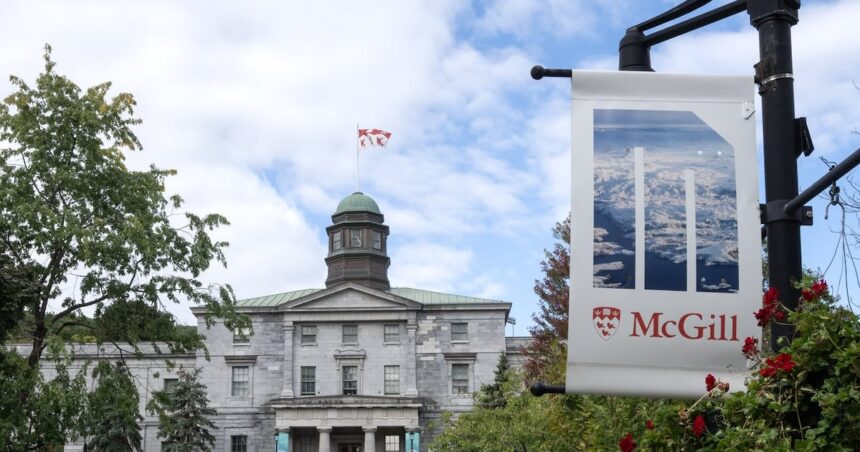In a dramatic shift that has sent ripples through Montreal’s academic landscape, the Quebec government announced yesterday it will not appeal the Superior Court ruling that struck down its controversial out-of-province tuition increases. The decision marks a pivotal moment for our city’s universities, particularly McGill and Concordia, which have been navigating turbulent waters since the policy was first announced.
The proposed tuition hikes would have seen students from other Canadian provinces paying nearly $17,000 annually to attend Quebec universities – a staggering increase from the previous $8,992. When first announced last fall, the policy sparked immediate backlash, with university administrators warning of potentially devastating impacts on enrollment and Quebec’s educational reputation.
“This is a significant victory for educational accessibility,” remarked Dr. Louise Beaudoin, education policy analyst at Université de Montréal. “The government’s decision acknowledges the complex realities our universities face in balancing financial sustainability with their mission to attract diverse talent.”
McGill University officials expressed cautious relief in a statement released today, noting that while the immediate threat has passed, long-term funding concerns remain. “We welcome this development as it provides some stability for our current and prospective students,” said Catherine Fortier, McGill’s communications director. “However, we continue to advocate for sustainable funding models that recognize the unique contributions English-language institutions make to Quebec’s intellectual and economic landscape.”
The Superior Court’s ruling in May had delivered a definitive blow to the government’s policy, with Justice Claude Bouchard determining that the tuition increases represented an unconstitutional interference with university autonomy. The court found the government had overstepped its authority by attempting to dictate such specific financial policies to independent educational institutions.
For Montreal’s economy, the implications stretch beyond campus boundaries. Our city’s vibrant student life has long been a cultural and economic engine, with international and out-of-province students contributing significantly to local businesses, housing markets, and the broader cosmopolitan character that defines us.
Last week, I spoke with several Plateau Mont-Royal business owners who described their relief at the news. “Students from across Canada bring so much energy and spending power to our neighborhood,” noted Jean-Philippe Tremblay, owner of Café Résonance on Avenue du Parc. “When the hikes were announced, we immediately worried about losing that crucial customer base.”
The government’s original justification for the increase centered on protecting French language and culture, arguing that English-language universities like McGill and Concordia benefited disproportionately from provincial funding while serving primarily non-Quebec students. Critics, however, pointed to data from the universities themselves showing that many graduates remain in Quebec, contributing to our economy and society regardless of their original home province.
Premier François Legault acknowledged the court decision at a press conference yesterday, stating: “While we maintain our commitment to protecting Quebec’s linguistic heritage, we respect the court’s ruling and will explore alternative approaches to supporting French-language education.”
For current students caught in the uncertainty, the resolution brings welcome clarity. Sarah Nguyen, a second-year political science student from British Columbia studying at McGill, told me she had been considering transferring before this announcement. “Many of my friends from outside Quebec were making backup plans, looking at universities in Ontario or even the U.S. Now we can focus on our studies rather than worrying about sudden financial burdens.”
Education experts note that Quebec still faces legitimate questions about university funding models. According to Statistics Canada, Quebec’s universities receive approximately 12% less per-student funding than the Canadian average, creating ongoing pressures that predate this tuition controversy.
“The government needs to address the real funding challenges facing our universities without creating policies that potentially isolate Quebec from the broader Canadian academic community,” explained Robert Dandurand, education policy researcher at UQAM. “Finding that balance requires meaningful consultation with all stakeholders.”
As our city’s academic institutions prepare for the upcoming fall semester, the government’s decision not to appeal provides a measure of stability. However, many university administrators remain vigilant, concerned that alternative measures might eventually replace the failed tuition policy.
Montreal’s unique position as home to both French and English universities makes these issues particularly complex. Our educational ecosystem thrives on diversity and interconnection, with students often crossing linguistic lines to access specialized programs or research opportunities.
Walking through McGill’s downtown campus yesterday afternoon, I noticed a palpable sense of relief among students enjoying the summer weather. The iconic campus greenspace, typically a haven for relaxation between classes, seemed to carry lighter energy as news of the government’s decision spread.
The coming months will likely bring renewed discussions about sustainable funding models for Quebec’s universities. For now, though, Montreal’s academic community can breathe easier knowing that one significant threat to its diversity and accessibility has been removed.







